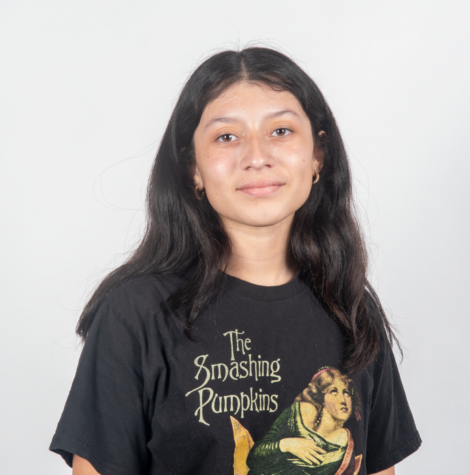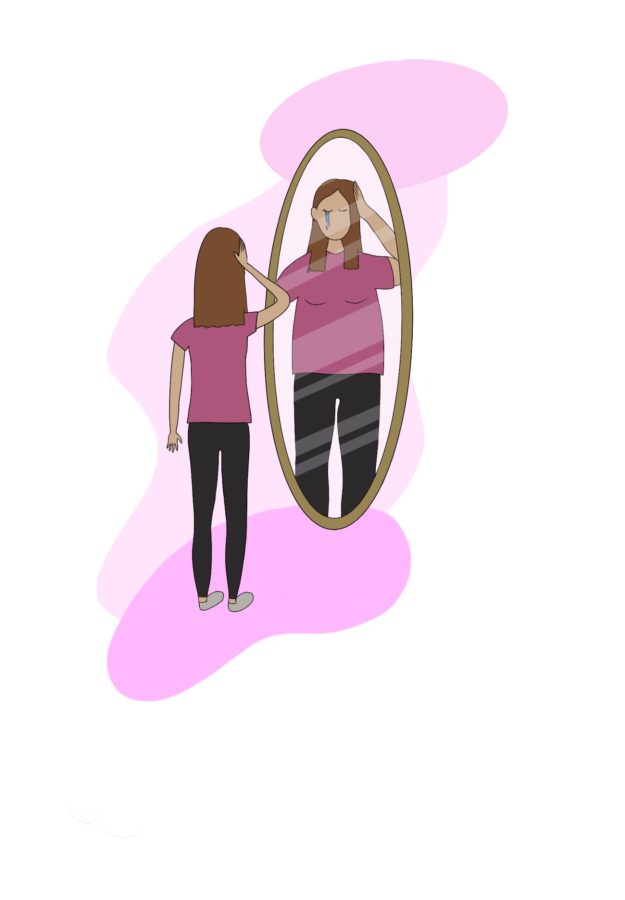Unrealistic Expectations
The Wellness Center hosts its second session of The Body Project with Robyn Deely, empowering girls to build confidence and counter toxic beauty standards.
“[A girl’s] self-worth is not directly related to her outside appearance. Women and girls are told to fit into a little box, look a certain way and act a certain way, [but] it’s a much bigger problem than people realize,” Deely said.
The Body Project program is a four-week program held in room 167 and taught by volunteer Robyn Deely. Deely works for the National Eating Disorders Association (NEDA) and has volunteered her time to educate high school girls and guide them through a time when unhealthy beauty standards can damage their view of themselves.
This year, Deely started working with Rachel Andrews, a counselor at the Wellness Center, to bring the program to RUHS. The Body Project is based on a Stanford study in which Deely reads off of a script that was created by the study to guide the meetings. After hearing about a rise in eating disorders in her job at the NEDA crisis helpline throughout the pandemic, Deely decided she needed to prevent those calls from happening.
“Right before COVID-19, I got certified to do The Body Project. I stayed on the crisis helpline all throughout [the pandemic] and really saw the fall of America’s mental health. We were just overwhelmed with people signing on, saying they’re relapsing and [that] their eating disorders are back,” Deely said. “So that was really challenging and alarming for me, and I realized [that] I needed to move away from crisis care to preventative care. The Body Project is the only preventative eating disorder program that exists currently.”
Deely feels it is important for girls to have a program such as The Body Project, because without it, they’ll think the “ideal appearance” is what they need to strive for. Deely stated that it is harder for those girls to shy away from the “ideal appearance,” but The Body Project prevents those thoughts from solidifying.
“It’s incredibly dangerous for women to think they need to strive for [the ideal appearance]. Our healthcare system is not set up to help and support people in crisis, so once they go out into the world [and] have a full-blown eating disorder or they have anxiety, depression and severe disordered eating, our healthcare system isn’t [ready] to help them,” Deely said. “Preventive care is kind of the future. It’s what we need to be focusing on.”
Girls who attend The Body Project program learn how to reject society’s unrealistic look that girls try to achieve and learn about body positivity. Attendees participate in group discussions, list unrealistic beauty standards and the cost of trying to achieve those standards, and take home exercises that help build their confidence.
“We go through different topics each week and we do different behavioral, verbal and interactive exercises to reframe the participants’ minds. We [often] see the perfect woman and that’s just kind of it, [but] the program helps to reframe the way we look at the world and realize that the ideal appearance is not actually reality,” Deely said. “It really gives the power to the individual participating in the program to rewrite how she sees things, change her perspective, and regain control of who she is.”
Junior Samantha Gutmann attended the Body Project and saw the program as a good opportunity to learn new information and discuss topics such as eating disorders, body positivity and self-awareness. Girls attend the meeting with others and use the time to share personal conflicts in a safe space.
“I think [the program] was a good way to address how others feel [by] actually discussing, with a broad variety of people, how they feel and their outside influences, homelife and more,” Gutmann said.
Deely recommends girls attend the Body Project from start to finish. The first session of meetings started on Oct. 18, and a new session started on Jan. 24, but girls interested in joining can look at the daily announcements to sign up. The next session of the program will start on Feb. 21 and will meet every Tuesday from 10 to 11 a.m.

Hi! I'm a junior and this is my first year in High Tide. Outside of school I enjoy reading, painting, spending time with my cat and re-watching the same sitcoms over and over again.



